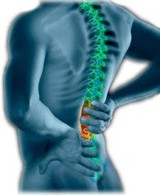Health Care Workers and Power Naps. What, Why and How?

Why Take a Power Nap?
- Improved Alertness: Healthcare workers need to be alert and focused during their shifts, and power naps have been shown to improve alertness and reaction time. This can help healthcare workers to make better decisions, provide better care for patients, and reduce the risk of errors.
- Enhanced Cognitive Function: Power naps have been linked to improved cognitive function, including memory, concentration, and problem-solving skills. This can be especially beneficial for healthcare workers who need to process complex information and make quick decisions.
- Reduced Stress: Healthcare workers are exposed to high levels of stress, and power naps can help to reduce stress levels by providing a short period of relaxation and rest.
- Increased Productivity: Power naps have been shown to boost productivity by improving alertness and focus. This can lead to better job performance, reduced work-related errors, and improved patient outcomes.
How to Take a Power Nap?
- Schedule Naps: Healthcare workers should schedule power naps into their workday, taking into consideration their workload, patient needs, and staffing levels. This can help to ensure that naps are not overlooked or forgotten.
- Keep it Short: Power naps should be kept short, ideally between 10-30 minutes. Longer naps can lead to sleep inertia and leave healthcare workers feeling groggy and sluggish.
- Find a Quiet and Comfortable Space: Healthcare workers should find a quiet and comfortable space to take their power nap, ideally away from bright lights and noise. This can help to promote relaxation and enhance the benefits of the nap.
- Use a Timer: Healthcare workers should set a timer to ensure that they do not oversleep and disrupt their nighttime sleep schedule. Many smart watches have a timer that can set off a quiet vibration to nudge you awake without disturbing others nearby.
- Avoid Caffeine: Healthcare workers should avoid caffeine before taking a power nap, as it can interfere with the ability to fall asleep and stay asleep.
In conclusion, power naps can be highly beneficial for healthcare workers, improving alertness, cognitive function, reducing stress, and boosting productivity. Regardless of age, healthcare workers should schedule power naps into their workday, keep them short, find a quiet and comfortable space, use a timer, and avoid caffeine. By taking care of themselves, healthcare workers can provide the best care possible for their patients.
At Green Scrubs, we believe looking good and feeling good go hand in hand. Providing awesome surgical hats may be our passion but keeping this community of health care heroes safe is our inspiration. We will continue to offer news and tips in the hope that they give some clarity and guidance.
Recent Posts
-
Lower Back Pain in Nurses: Causes, Treatment, and Prevention
Nurses are at a high risk of developing low back pain (LBP) due to the physical demands of their job
-
Dealing with Alzheimer's Disease as a Health Care Worker and protecting yourself from the onset of Alzheimer's
Alzheimer's disease is a progressive brain disorder that causes memory loss and other cognitive decl


